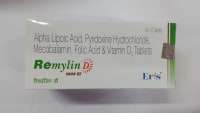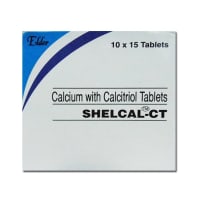NOTICE: unsafe with : Alcohol
USED FOR:
Gout
COMPOSITION:
Allopurinol (100mg)
Therapeutic Uses:
pain analgesics

CAUTION
Taking alcohol can affect the action of Ryloric 100mg Tablet, increase your uric acid levels and hence aggravate gout.

WEIGH RISKS VS BENEFITS
Ryloric 100mg Tablet may be unsafe to use during pregnancy.Animal studies have shown adverse effects on the foetus, however, there are limited human studies. The benefits from use in pregnant women may be acceptable despite the risk. Please consult your doctor.

SAFE
Ryloric 100mg Tablet is safe to use during lactation. Human studies have shown that either the drug does not pass into the breastmilk in significant amount or is not expected to cause toxicity to the baby.

Do not drive unless you are feeling well.Occasionally drowsiness, dizziness or vertigo, ataxia and visual disturbances, may occur when taking Ryloric 100mg Tablet. This may affect your driving ability.

CAUTION
Ryloric 100mg Tablet should be used with caution in patients with kidney disease. Dose adjustment of Ryloric 100mg Tablet may be needed. Please consult your doctor.

CAUTION
Ryloric 100mg Tablet should be used with caution in patients with liver disease. Dose adjustment of Ryloric 100mg Tablet may be needed. Please consult your doctor.
Uses of Ryloric Tablet
Ryloric 100mg Tablet is used in the treatment of gout.
How to use Ryloric Tablet
Take this medicine in the dose and duration as advised by your doctor. Swallow it as a whole. Do not chew, crush or break it. Ryloric 100mg Tablet is to be taken with food.
How Ryloric Tablet works
Ryloric 100mg Tablet is a xanthine oxidase inhibitor. It works by decreasing blood uric acid, which is the chemical that causes gout.
Common Skin rash.
Expert advice for Ryloric Tablet
Your doctor has prescribed Ryloric to reduce episodes of gout attack. Take Ryloric at the same time every day, with or without food. Take plenty of fluids (2-3 litres) daily while on Ryloric. Notify your doctor if you develop a rash. This could be a sign of allergy and should go away on discontinuing Ryloric. When you first start taking Ryloric, you might have more gout attacks. Do not stop Ryloric on having an acute attack of gout as that could make an attack worse. To ensure that Ryloric is working, you may have to undergo blood tests regularly.
Q. Is Ryloric safe to use?
Ryloric is safe if used at prescribed doses for the prescribed duration as advised by your doctor
Q. What is Ryloric?
Ryloric belongs to a group of medicines called xanthine oxidase inhibitors. It reduces the amount of uric acid in the body by blocking one of the processes that make it. It is used to treat gout (pain and swelling of the small joints due to elevated levels of uric acid in the blood and subsequent deposition in the joints), kidney stones, and to remove uric acid from the body in certain cancers.
Q. Can I take Ryloric with Torasemide?
Ryloric can be taken with Torasemide. Ryloric is sometimes given to decrease the hyperuricemic effects of Torasemide. However, Ryloric is not safe in patients with renal failure, so may need to be replaced with another similar medicine like febuxostat.
Q. How is Ryloric different from febuxostat?
Both Ryloric and febuxostat work in a similar way by lowering uric acid levels. However, as compared to Ryloric, febuxostat is seen to be more effective and faster in its action. Also, in patients taking Ryloric, a dose adjustment is needed if the patient has mild, moderate or severe renal failure while in the case of febuxostat a dose adjustment may be needed only in patients with severe renal failure.
Q. Can I take Ryloric with febuxostat?
Both Ryloric and febuxostat are uric acid lowering agents and work in a similar way. So, using both the two medicines together may not be very beneficial and can increase the risk of side effects. However, there have been studies where febuxostat when used with Ryloric in patients with refractory gout, was quite effective in providing relief. So, a combined use would be best decided by your treating doctor depending on your condition.


 Ryloric 100mg Tablet
Ryloric 100mg Tablet  Bookmark
Bookmark





















